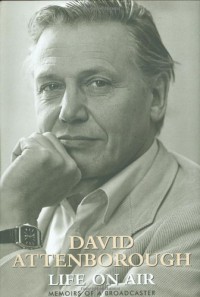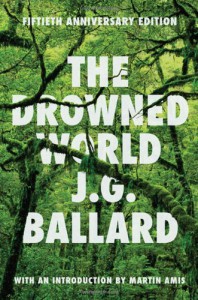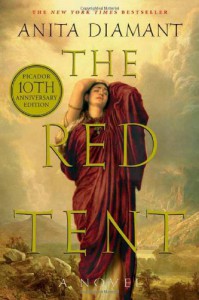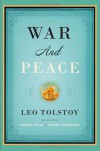
The Brothers is about Henrik and Erik, Finnish brothers in 1809 who fought on opposing sides of the war between Sweden and Russia, that made Finland a part of the Russian Empire. Although they share blood, there has long been conflict between them, and when Henrik finally returns home, it's to a broken house full of people that hide secrets of their own. In the wintery wilderness, Henrik and Erik must face up to each other and the revelations that are to come.I enjoyed The Brothers, mainly for the atmosphere. I read this novella in one go on New Year's Day, snuggled up in a blanket with the heating turned up. So it was wonderful to read about the icy Finnish winter, the rugged Farmhand, the distant wife and the frozen rivers. On the back cover, it states that The Brothers is a 'Shakespearean drama from icy Finland' and the atmosphere reminded me a cross between Hamlet and a Brothers Grimm fairy tale. I wanted to dive right into this book, the setting was that vivid.Despite the historical elements, The Brothers is mainly a story about what can happen to people when they live in isolation from larger communities. Some of the drama and secrets centre around Erik's wife, Anna, but in a way that's inevitable as she's the only woman we read about existing in the community of what seems to be only two houses. When you live so shut off, boundaries between relationships blur and people have to take on multiple roles in your life. That said, I didn't guess the big reveal near the end (although there are plenty of smaller reveals along the way) and I loved that Sahlberg was able to surprise me.Although I very much enjoyed this book, there was a distance from the characters that stopped me loving it. I don't mind less than perfect characters, so the flaws of Henrik didn't concern me, but it was written in a style that reflected the cold, icy Finnish winter. Whilst I admired the writing, this technique also stopped me from connecting with any of the characters properly, and it was this that made me only like the book, rather than love it. It is a wonderfully written book though, and well worth reading for the atmosphere alone.
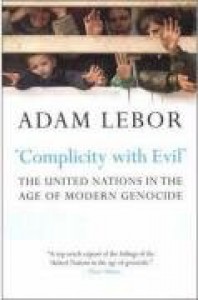 Everyone knows that, after the Holocaust, the world swore 'never again'. Countries came together to form the United Nations, an institution with one of it's founding principles the prevention of another genocide. The Universal Declaration of Human Rights was signed and ratified by member states. But things didn't exactly work out to plan - three genocides later (Bosnia, Rwanda, Darfur), Adam Lebor asks in his book what exactly went wrong. Why did the UN fail to act, despite knowing exactly what was going on?This is a well researched yet still easy to follow book. Lebor has interviewed all of the major players in the UN at the time of all three genocides and followed the exhaustive paper trails.The central argument is whether people can be guilty of all the deaths through inaction. If someone knows a genocide is occuring, has the power to stop it and does not, are those deaths on their conscience? Lebor gives the following reasons as to why the genocides were not prevented:*The UN is overly obsessed with neutrality, and this prevents it from acting when it needs to. For example, when Bosnian Muslims were being slaughtered in Srebrenica, some in the UN argued against striking against the Bosnian Serbs (the perpetrators of the genocide) as the Muslims had once been involved in a civil war. During the Rwandan genocide, Rwanda actually had a seat on the security council and could therefore derail any interventions! In a genocide, the UN should not be neutral.*Bureaucracy - It takes so many people to make and authorise a decision that often it was too late. Bureaucracy was taken to ridiculous measures too; a request to bomb approaching Serbs in Srebrenica, saving the lives of thousands of Muslims, was rejected because it was filled in on the wrong form! It wasn't even passed up to the relevant superiors.*The permanent members of the security council do not make things easy. Russia and China often threaten to veto any intervention and the US, UK and France are hard to win round.*UN peacekeepers should automatically be authorised to intervene if they witness genocidal acts or human rights violations, rather than submitting a report and waiting for agreement (which often comes too late).Lebor also makes a good case against isolationism. I know lots of people thought and think 'It's going on in another country, what has it got to do with me? Let them sort their own problems out.' But that's just not possible in the world today. Some of the Bosnian Muslims who experienced the western world looking away as they were raped and slaughtered, turned to Al Qaeda. Three of the September 11th hijackers were Bosnian Muslims radicalised after the genocide. I would recommend this book to anyone interested in power politics, or the UN in particular. Samantha Power's A Problem From Hell is a better general introduction to the three genocides.
Everyone knows that, after the Holocaust, the world swore 'never again'. Countries came together to form the United Nations, an institution with one of it's founding principles the prevention of another genocide. The Universal Declaration of Human Rights was signed and ratified by member states. But things didn't exactly work out to plan - three genocides later (Bosnia, Rwanda, Darfur), Adam Lebor asks in his book what exactly went wrong. Why did the UN fail to act, despite knowing exactly what was going on?This is a well researched yet still easy to follow book. Lebor has interviewed all of the major players in the UN at the time of all three genocides and followed the exhaustive paper trails.The central argument is whether people can be guilty of all the deaths through inaction. If someone knows a genocide is occuring, has the power to stop it and does not, are those deaths on their conscience? Lebor gives the following reasons as to why the genocides were not prevented:*The UN is overly obsessed with neutrality, and this prevents it from acting when it needs to. For example, when Bosnian Muslims were being slaughtered in Srebrenica, some in the UN argued against striking against the Bosnian Serbs (the perpetrators of the genocide) as the Muslims had once been involved in a civil war. During the Rwandan genocide, Rwanda actually had a seat on the security council and could therefore derail any interventions! In a genocide, the UN should not be neutral.*Bureaucracy - It takes so many people to make and authorise a decision that often it was too late. Bureaucracy was taken to ridiculous measures too; a request to bomb approaching Serbs in Srebrenica, saving the lives of thousands of Muslims, was rejected because it was filled in on the wrong form! It wasn't even passed up to the relevant superiors.*The permanent members of the security council do not make things easy. Russia and China often threaten to veto any intervention and the US, UK and France are hard to win round.*UN peacekeepers should automatically be authorised to intervene if they witness genocidal acts or human rights violations, rather than submitting a report and waiting for agreement (which often comes too late).Lebor also makes a good case against isolationism. I know lots of people thought and think 'It's going on in another country, what has it got to do with me? Let them sort their own problems out.' But that's just not possible in the world today. Some of the Bosnian Muslims who experienced the western world looking away as they were raped and slaughtered, turned to Al Qaeda. Three of the September 11th hijackers were Bosnian Muslims radicalised after the genocide. I would recommend this book to anyone interested in power politics, or the UN in particular. Samantha Power's A Problem From Hell is a better general introduction to the three genocides.

